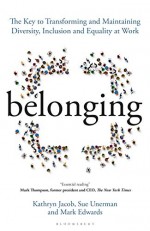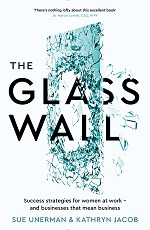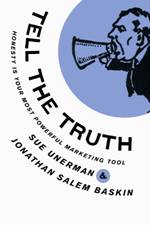
This might be a controversial statement for some. And it depends of course on what you regard as “better”. After all we are no longer in the so-called Golden Age of Advertising. Creative legend and OG Dave Trott has recently posted lots of great ads on Twitter with his notes on how they cut through and were mould breaking. This includes his Victory V ad with a man with his head blown off. His comment: “Did this poster with Derrick Hass – no headline, no copy, no logo. In those days we trusted consumers to have a bit more nous.”
Maybe some (great) creatives did.
There were lots of less subtle messages too. I grew up in an era where TV ads told you that you weren’t a good mum if you didn’t buy your kids a certain breakfast cereal. Where if you didn’t buy the right kind of cleaning product you were sloppy. Where women were perfect or perfectly awful and men never did the housework. You could characterise it as bombardment to maintain the status quo from 1950s society norms. The 2018 ASA report concludes that there was plenty of evidence that there still had to be a tougher line on ads featuring stereotypical gender roles, including ads which mock people for not conforming to gender stereotypes.
This has changed, this has got better.
I spoke at United Nations General Assembly in New York in September for the World Women Foundation about the role that media and advertising can play in making the world more equal for women and girls.
I said that the industry had come a long way since my childhood when ads largely supported the status quo of depicting subservient women. Increasingly advertisers and their agencies are seeking to fulfil profit goals whilst also doing something to make the world better.
Dove’s campaign for real beauty is of course one example of this. In India Ariel campaigns for couples to Share the Load. Always Like a girl, highlights inequalities in attitudes. eBay UK & Black Girl Fest partnered to expand economic opportunities for Black women ecommerce founders. in Peru when Mibanco discovered that more women were paying back their loans and building up savings than men, they wanted to make a stand and empower those that had previously been denied financial liberty. The Emancipation Loan, removed the need for a second signature from a woman’s husband in order to access lines of credit, enabling women to pursue their entrepreneurial dreams, without asking for permission.
In addition advertisers play a role in making the world safer for women and girls
Vodafone in Turkey created an app that women could use in secret to get help when they were in danger of domestic abuse. The app was hidden within a flashlight app, all a woman needed to do was shake her phone and a message along with her location would be sent to three people she trusts.
Every time a women searched in Google in Columbia for any word related to domestic violence they would see a video created by an influencer, her face bruised and battered.
Every viewer who watched the video was tracked. The next time they searched one of our queries a more dramatic video would be shown, featuring Estefania suffering from an even more brutal attack. In total, there were 230 different films, personalised in real time, and a huge up turn in women seeking help.
Artificial intelligence created a stand out campaign against domestic violence in Israel. The videos use the voice of each victim — as well as realistic facial features and gestures — to convey the message that someone living in the reality of domestic abuse can and should get out before it’s too late.
MediaCom were proud to work with the Home Office and Channel 4 on a campaign to highlight the issue of coercive control in the biggest teen soap of the time, HollyOaks.
Things have come a long way. They have got better. If we all take a real responsibility in our choices they will can and will get better still. We can all make a difference.



The one thing you must have to win in 2023: an asymmetrical advantage.
Wednesday, January 18th, 2023Here’s two ways of achieving this. Better use of data than your competition. Better imagination (powered by better empathy and creativity).
Author and journalist Derek Thompson says Moneyball has ruined baseball for him. And ruined the music charts (he’s an expert here with his book Hit Makers, the science of popularity in an age of distraction), and in his opinion has also ruined most forms of entertainment, and pretty much culture in general.
For those of you who have missed the 2003 book and the 2011 movie, Moneyball, the art of winning an unfair game, detail the way that use of data and analytics propelled a failing baseball team up the league. They inspired the same precision of insight into a wealth of other areas to create significant competitive advantage.
Except that once everyone is practicing precision data analysis, there is no longer significant breakthrough advantage. It becomes table stakes.
Of course, if you are first in sector then your advantage is huge. The first team to apply Moneyball techniques in baseball, Oakland Athletics, under manager Billy Beane rocketed up the league. But the book’s author, Michael Lewis, who made Billy famous, has acknowledged that the success of the book worked to the detriment of the team by democratizing the use of data and empiricism over gut feel and instinct.
Thompson argues that “The analytics revolution, which began with the movement known as Moneyball, led to a series of offensive and defensive adjustments that were, let’s say, catastrophically successful” and took the unpredictability and pizzazz from the game of baseball.
I’m going to disagree with Thompson. The relentless application of data does not always lead to predictability, it does not end here. The last football world cup was full of surprises, despite universal use of detailed data. Germany went home early, Italy didn’t even get there, Belgium, who were the second ranked team in the world going in, were also out earlier than expected. Morocco got unexpectedly to the semis.
Good analytical skills haven’t made the beautiful game predictable. VAR didn’t make the game boring. As we enter an era of AI mastery of marcomms data we must ask ourselves what will happen to competitive advantage and focus our attention on how to win on the back of and in conjunction with data knowledge. Because there is significant disadvantage to a single focus. Any business that places all its eggs in one big data basket runs the risk of being Moneyballed.
It will not be enough to be great at data analytics, businesses will need specifically to seek knowledge asymmetry to win an edge. And there’s more. They will need star players – who is your Messi? They will need emotional resilience and inventiveness. They will need empathy and understanding of their customers in the face of a grim economy and an environment of worsening news stories. They will need leadership and vision. They will need the backing of the board and a simple communicable strategy. They will need gut feel and instinct.
Great marcomms will be based on a range of unfair advantages.
Empathy and imagination can elevate analytical information into transformational insights and execution.
Creativity will become even more crucial as our industry becomes more Moneyball.
The need for breakthrough thinking and behaviour of every kind is going to be more important than ever.
Posted in MediaComment | Comments Off on The one thing you must have to win in 2023: an asymmetrical advantage.